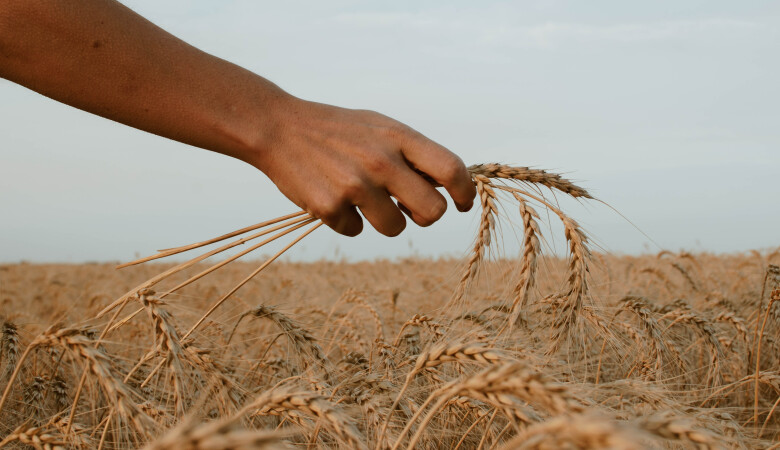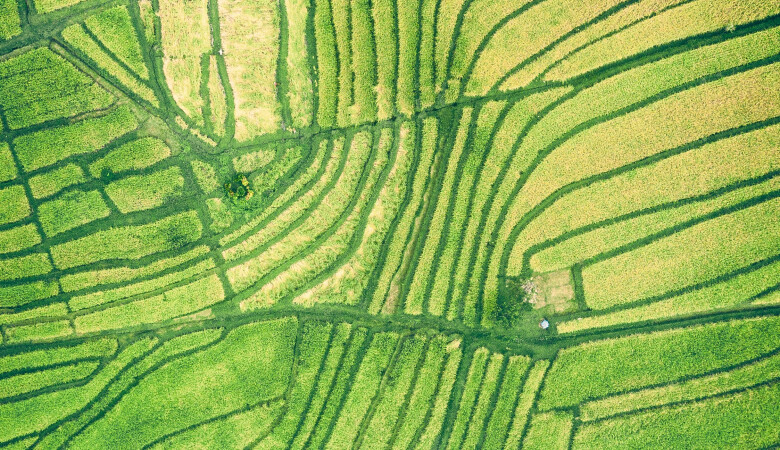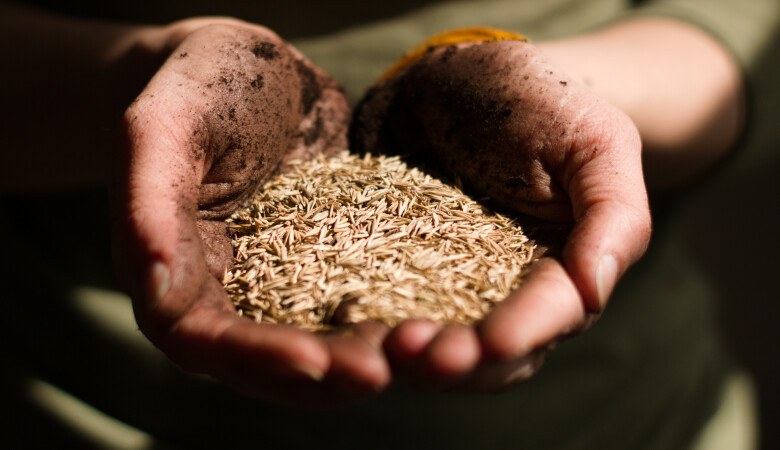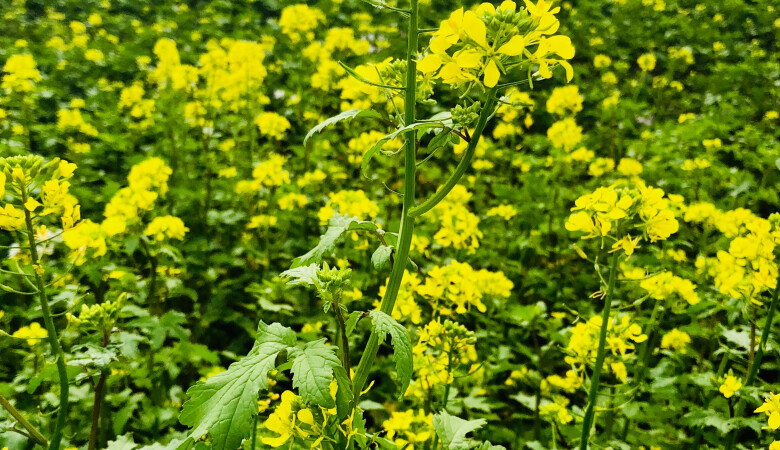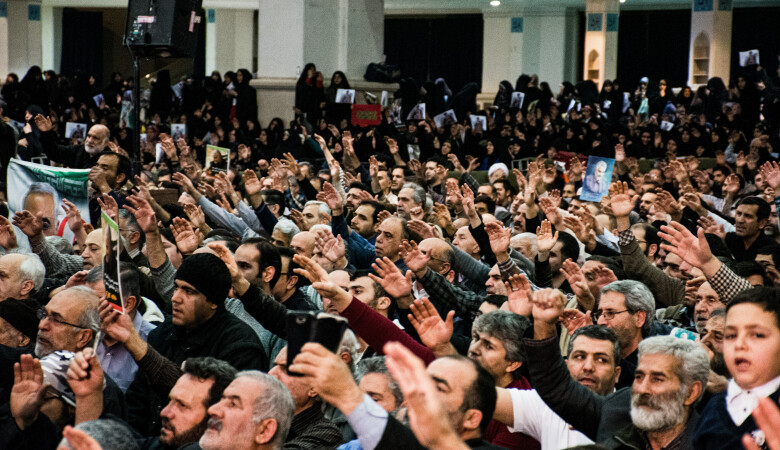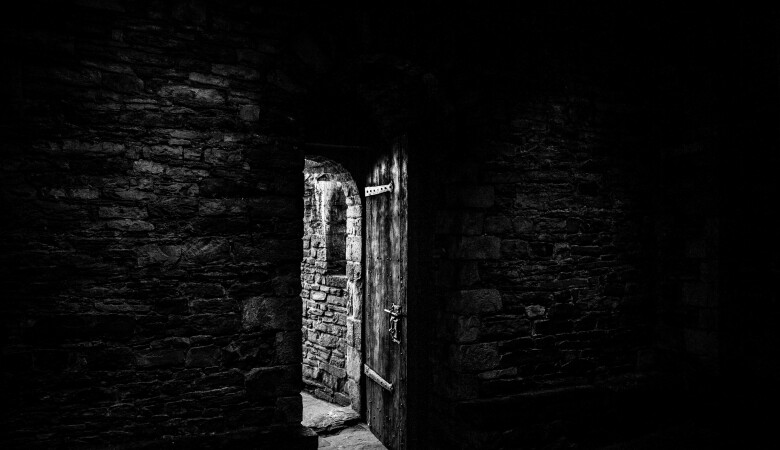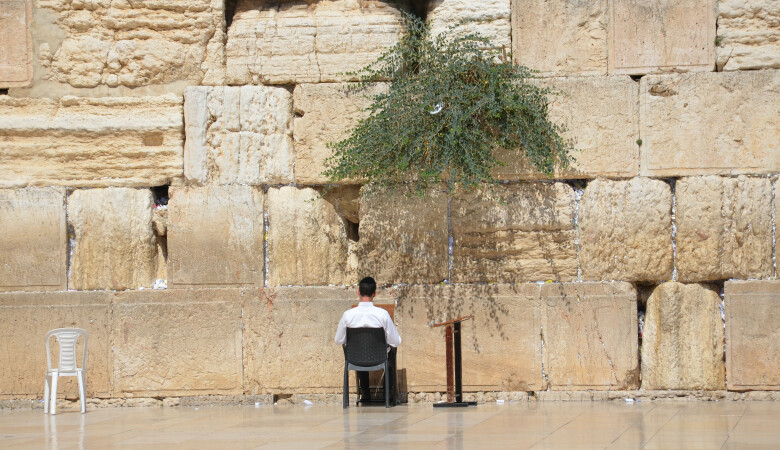Series: Mark
The Parable of the Wicked Tenants (Mark Sermon 59)
September 03, 2023 | Andy Davis
Mark 12:1-12
Holiness, Stewardship
God has lavished on us everything we need for life and godliness, and in return, God expects us to bear fruit as a return on His investment.
- SERMON TRANSCRIPT -
Turn in your Bibles to Mark chapter 12. We continue our study in the Gospel of Mark, and we look at this parable of the wicked tenants. As we do so, I'm mindful of the fact that throughout the scripture, Almighty God demands fruit from his people. From the very beginning, God created a world to bear fruit. In Genesis 1:11, "Then God said, 'Let the land produce vegetation, seed bearing plants and trees on the land that bear fruit with seed in it, according to their various kinds, and it was so.” I think about the wondrous variety of fruits, papaya and mango, pineapple, succulent, pears, tart, crisp apples. Fuzzy brown, kiwi fruit, all kinds of fruit. The Lord has made a world of fruits, all of them from seeds, the genetic code of which God created at the beginning.
I. Almighty God Demands Fruit From His People
So also when God created man, male and female, in his image, this was the command that He gave to them. God blessed them and said to them, "Be fruitful and multiply and fill the earth." Fruitfulness in that verse meant having children, many children, who themselves, each one of them would be in the image of God, that they would be fruitful and multiply, that they would fill the world with human beings so that the earth would be filled with the knowledge of the glory of the Lord as the waters cover the sea. The consistent teaching of scripture is that God has lavished on us many advantages and many blessings, everything that we need for life and godliness and fruitfulness. In return, God expects fruit. He expects a return on his investment.
Many scriptures testified to this issue of required fruit. With the coming of the kingdom of God, John the Baptist preached a very fiery message. He said to his generation, "Produce fruit in keeping with repentance." He also said two verses later, "The ax is already at the root of the trees. And every tree that does not produce good fruit will be cut down and thrown into the fire." Jesus himself said much about fruit. He said, "Make a tree good and its fruit will be good. Or make a tree bad and its fruit will be bad. For a tree is recognized by its fruit." And very poignantly, in John 15, He gives an image of a vine with many branches. He said, "I am the true vine and my Father is the gardener. He cuts off every branch in me that bears no fruit. While every branch that does bear fruit, He prunes so that it will be even more fruitful.” Similarly, this powerful parable in Mark 12 teaches this vital lesson, Almighty God expects fruit from his people. He expects a return on His investment in our lives.
II. The Parable of he Vineyard: Understanding the Context
Let's understand this parable in its context, the immediate context for Jesus. This is the last week of his life on earth. It is the Passover. Thousands of pilgrims, Jewish worshipers were flooding from all over the Greco-Roman world into Jerusalem for the Passover. The triumphal entry has already happened. Jesus has entered Jerusalem to shouts of acclaim and triumph to the praise of the people. But Jesus' enemies are there as well. They're ready to attack Him, to tear Him down. On route, the next morning after the triumphal entry to Jerusalem, He saw a fig tree with lots of leaves on it and He was hungry in the morning, so He went to get fruit from it but found nothing on it except leaves. Then He said to the tree, "May you never bear fruit again."
I think this prophetic cursing of the fig tree with its judgment and its immediate withering was connected to the spiritual fruitlessness of the nation of Israel, because He's just about to go in there and cleanse the temple of all of its wickedness, its wicked corruptions. The cleansing of the temple involve driving out greedy money changers and corrupt religionists who are making money on religion. Jesus then began His ministry there in the temple. He was teaching the people. He was doing miracles. He was healing in the temple. And as a result of all of this very bold and powerful ministry and action, the religious leaders opposed Him to his face. They demanded to know by what authority He was doing all these things, and we addressed that last time. He challenged them saying He would ask them a question. If they answered, then He would answer their question about authority. “John's baptism, where did it come from? Was it from heaven or from men?”
It's very wise on Jesus's part because the same one who sent John to baptize in water sent His son into the world to do all these things. Jesus' authority came from God, because all true authority comes from God. But because they didn't answer his question, He didn't answer theirs. So that was last week. So that's the immediate context of Jesus.
There is an ancient context to Jesus's parable of the vineyard, and I'd like you to look at it. Turn to Isaiah chapter 5. Keep your finger in Mark 12, but we're going to go over to Isaiah 5. There is a background to the parable of the vineyard. It's a song that the prophet Isaiah sang for God, a song that he sang for God, but it's very similar to the parable that Jesus tells. It's got some similar points of connection. Isaiah 5:1-6, there, the prophet Isaiah, seven centuries before Jesus, wrote down this song, "I will sing for the one I love a song about his vineyard. My loved one had a vineyard on a fertile hillside. He dug it up, cleared it of stones and planted it with the choice of vines. He built a watchtower in it and cut out a wine press as well. Then he looked for a crop of good grapes, but it yielded only bad fruit. Now, you dwellers in Jerusalem and men of Judah, judge between me and my vineyard. What more could have been done for my vineyard than I have done for it? When I look for good grapes, why did it yield only bad? Now I will tell you what I'm going to do to my vineyard. I will take away its hedge and it will be destroyed. I will break down its wall and it will be trampled. I will make it a wasteland, neither pruned nor cultivated and briers and thorns will grow there. I'll command the clouds not to rain on it."
That's Isaiah's song of the vineyard. It's got some points of similarity and some points of difference with Jesus' parable. Jesus employed a lot of similar imagery in his parable. There is a vineyard, there are choice vines. There is, around it, a protective wall. There is a wine press. There is a watchtower. And there is also a very disappointing outcome for the owner of the vineyard. But there are some major differences as well.
The central major difference in the parable is the rhythm of the sending of messengers, in Jesus' parable, messengers from the owner of the vineyard demanding harvest and how those messengers are treated. There's none of that in Isaiah's song. Furthermore, in Isaiah's song, the vineyard is destroyed, crushed, ruined, but in Jesus's, the vineyard goes on and is given to other people who will produce its fruit. So there's some significant differences. In Isaiah's song, the vineyard was the city of Jerusalem and its people, and the fruit He desired was righteousness in His people, and the judgment that would come would be the destruction of Jerusalem under the Babylonians.
So that's the backdrop. Go back now to Mark 12 and let's look at Jesus' parable. Mark 12:1-11, "He then began to speak to them in parables. 'A man planted a vineyard. He put a wall around it, dug a pit for the wine press and built a watchtower. Then he rented the vineyard to some farmers and went away on a journey. At harvest time, he sent a servant to the tenants to collect from them some of the fruit of the vineyard, but they seized him, beat him and sent him away empty-handed. Then he sent another servant to them. They struck this man on the head and treated him shamefully. He sent still another, and that one they killed. He sent many others, some of them they beat, others they killed. He had one left to send, a son whom he loved. He sent him last of all, saying, 'They will respect my son.' But the tenants said to one another, 'This is the heir. Come, let's kill him and the inheritance will be ours.' So they took him and killed him and threw him out of the vineyard. What then will the owner of the vineyard do? He'll come and kill those tenants and give the vineyard to others. Haven't you read this scripture? The stone the builders rejected has become the capstone. The Lord has done this and it is marvelous in our eyes."
Mark introduces this passage saying Jesus began to speak to them in parables, plural, but He only gives us one parable. Matthew gives us one more, the parable of the two sons that were commanded by the father to go work in the fields, both of them were bad sons. One of them said, "I will not," but later has changed his mind and went. The other one said, "I will, sir," but he did not go. That's that parable. Other than that, we get the feeling that probably Jesus taught many other parables, some of which are recorded in other places in the Gospels which He taught again in Jerusalem. But this is the only one that Mark gives us.
III. Walking Through the Parable: Fruitfulness Produces Judgment
Now let's walk through the parable and try to understand it. With parables, you definitely want to try to understand the main point, the central purpose. There are details that are valuable, but there is a main idea, and the main idea of Jesus's parable of the vineyard is fruitlessness produces judgment. Fruitlessness produces judgment from God. The image is that Israel is a vineyard with an absentee landowner or landlord. The central figure is this landowner literally called a man, a householder. He planted the vineyard as an investment. Ordinarily, it would take three years to begin getting that return on the investment.
Now every advantage was given to this vineyard. First of all, there's a wall around it for protection to keep out wild animals and thieves, the wall. There's also a wine press, which was an anticipation of the harvest, an anticipation of the prophet from the vineyard. Generally, it would've been two basins carved out of rock and then lined with white plaster, an upper one and a lower one, and the servants would put the grapes in the upper one and tread them out with their feet. Then the wine, the grape juice, would run down into the lower basin where it would begin the process of fermentation, be gathered for fermentation, the wine press. Then there is the watchtower, which enables guardians to look out over the vineyard and make certain that it's well protected, a constant vigil looking out over the surrounding terrain.
Then in the parable, there are these tenant farmers. Now what is a tenant? What does that mean? Tenants are hired laborers, skilled laborers who are brought into work the vineyard. It's not their vineyard, it belongs to the landowner. Their skill and their labor is essential to the success of the enterprise. These tenant farmers are brought in as stewards or workers under the owner. They don't own the vineyard, it doesn't belong to them, but if they do their work well, they'll share it in the profits. This is the key concept. The vineyard belongs to the landowner. The tenant farmers are just working the vineyard in the hope of sharing its harvest.
Also essential to Jesus' parable is the absentee landowner. The owner goes away on a journey. He's not visibly there moment by moment, controlling the venture, looking out over it, managing it. He's not there. In the Luke version, Jesus says the master goes away for a long time, so the tenants were on their own. They do not see the master day by day. They have to remember them in their minds and be faithful to him in their hearts.
Then there's harvest time, verse 2, “At harvest time, he sent a servant to the tenants to collect from them some of the fruit of the vineyard.” The owner could mark the seasons. He knew when it was time to expect a return on the investment, and so he begins to send messengers, servants, to come and get his share of the crop at harvest time. Then comes the shocking rebellion on the part of the tenant farmers. In verse 3, “They seized the servant that was sent. They beat him and they sent him away empty-handed. Then he sent another servant to them and they struck this man on the head and treated him shamefully. He sent still another, and that one they killed. He sent many others. Some of them they beat, others they killed.”
Now this must've been stunning to his hearers. Jesus crafted this parable to maximize shock. They knew Isaiah's song. None of this happens in Isaiah's song, but a different kind of judgment happens there. The details of Jesus' parable really are repulsive. The violence gets worse and worse with each successive messenger. The first servant is beaten, the second one is crushed in the head and treated shamefully, exposed to shame, humiliated, the next man is murdered outright.
Even more amazing as how patient this landowner is. The crowd listening must have wondered how much more of this the owner was going to put up with. Jesus said the owner actually sent many others, many. Some of them they killed and abused. Others, they beat. Every one of them, however, got treated shamefully and the owner got none of his return on the investment in any case. Then comes the most shocking plot twist of all, verses 6-8, "He had one left to send, a son whom he loved. He sent him last of all saying, 'They will respect my son.' But the tenant said to one another, 'This is the heir. Come, let's kill him and the inheritance will be ours.' So they took him and killed him and threw him out of the vineyard."
This is so amazing, and it would've been stunning to Jesus's hearers. I think some in the crowd must have said, "Wait a minute, don't do that. I mean, isn't it obvious what's going to happen? Don't send your son." Notice that Jesus calls him “a son whom he loved”. At Jesus's baptism in Mark's Gospel it says, "You are my son, whom I love. With you, I am well pleased." That was a message spoken directly from God to Jesus. To the world, in Matthew's account it says, "This is my son whom I love. With him, I am well pleased." And the owner in the parable said to himself, "They will respect my son." Friends, that's exactly what should have happened, they should have respected his son. They should have delighted in his son as God does. They should have listened to his son as speaking the very words of God. They should have obeyed his son. They should have honored his son. They should have worshiped him and followed him. That's what they should have done. Instead, they rejected him, they despised him, they opposed him. And in the end, they killed him.
In the parable, what is the tenant farmer’s motive? The tenant farmers did not want the owner ruling over them, they rejected his authority. They didn't want to give him anything. They wanted full ownership of the vineyard themselves. They wanted all of the proceeds to come back to themselves, and when they see the son, they think, "This is the final moment here of us gaining control over the vineyard." They thought to kill the heir and take his inheritance, meaning the vineyard. "It'll be ours then.” Notice the detail, "They kill him and throw him outside the vineyard." This is a clear prophecy of Jesus's rejection by the leaders of Israel and His crucifixion outside the city gates, completely rejected by his own people. He died outside the city.
IV. Jesus Reveals the Verdict
That's the parable, then Jesus summons them to render a verdict just as Isaiah did. In Matthew's account, Jesus asks them for a verdict, Matthew 21:40, "Therefore, when the owner of the vineyard comes, what will he do to those tenants?" They give the verdict, verse Matthew 21:41, "He will bring those wretches to a wretched end, they replied, and he will rent the vineyard to other tenants who will give him his share of the crop at harvest time." In Mark's Gospel, Jesus renders the verdict himself, “He will come and kill those tenants and give the vineyard to others.” It's similar to what Isaiah says concerning his song, "Now then, you dwellers in Jerusalem and men of Judah, judge between me and my vineyard. What more could have been done for my vineyard than I did for it?" He draws his hearers into rendering a verdict, a judgment on this behavior.
V. The Parable Interpreted
That's the whole parable. Let's interpret it. Let's try to understand it. You go line by line and you just think, "What does each figure and each aspect represent?" Let's start with the absentee landowner, and that's obviously God. The absentee landowner is God. The parable puts some of God's attributes on display beautifully. It starts with the sovereignty of God, His right to demand a harvest. There is nothing in the universe that doesn't belong to God for He made it, and it belongs to him. He made the heavens and the earth, the sea and all that is in them. Every molecule is His. Everything that grows is His. Every animal is His. This parable asserts his right to the vineyard itself and to everything that comes from it.
We also see the goodness of God, God's full provision for Israel. God lavishly provided everything Israel would need for a full rich spiritual harvest. Certainly a physical harvest, but a spiritual harvest as well. God gave them promises through the patriarchs, Abraham, Isaac, and Jacob. God gave them Moses, the deliverer, who led them out of with a mighty hand and an outstretched arm and with ten judgments on Egypt and the story of God's deliverance, including the Red Sea crossing. God gave them manna, bread from heaven to eat. God gave them water from a rock miraculously flowing. God gave them His word, His perfect word, the laws of Moses, the Ten Commandments written, engraved in stone. And then in all of the other books of Moses, the first five books of the Bible, he gave them a perfect law.
God also gave them the promised land, a land He said, flowing with milk and honey. He powerfully cleared out their enemies under Joshua. The walls of Jericho fell like they were made of sand, and He destroyed people, nations, seven nations stronger and mightier than them. Cleared it out and gave them this beautiful land. He then continued to protect Israel from their enemies again and again. He was a wall around them protecting them, and He gave them everything they needed for a rich physical harvest, yes, but more especially a spiritual harvest, that they would love him with all of their hearts, soul, mind and strength and that they would love their neighbors as themselves. God gave them everything they needed for that.
We also see the absence of God. In Mark 12:1, he went away on a journey. Let's try to understand what this signifies. In many of these parables, the owner, the king, the master is in some sense removed from the scene. He's in some sense, absent. He's the master who entrusts five talents and two talents and one talents to his servants and then goes away on a long journey. He's not there. He is the owner of a house who entrusts the care of his servants to a steward who will look after the household while he's gone. He's the bridegroom who is a long time in coming and all 10 of the virgins fall asleep. Five of them are wise and five foolish, but they're all waiting a long time for the bridegroom to come. He's the noble man that goes away on a distant journey to get himself made king and then comes back at the right time [Luke 19].
Here's the idea. The key concept of all of this is we, the people of God, will be judged by a visible God on Judgment Day based on what we did by faith in an invisible God in our lives. Let me say that again. On Judgment Day, we will be judged at that time by a visible God based on what we did by faith in an invisible God. Here in this parable, the tenant farmers never see the landlord again. They only deal with his messengers, that is until the end in Matthew 21:40, "When the owner of the vineyard comes, what will he do to those tenants?" He's coming. He will not be invisible forever. He is coming. Judgment Day is coming. The absence of God, however, is from our human perspective only. We perceive him as absent because we don't see him. The Bible actually reveals that God is everywhere present all the time. Psalm 139:7-9, "Where can I go from your spirit? Where can I flee from your presence? If I go up to the heavens, you are there. If I make my bed in the depths, you are there. If I rise in the wings of the dawn, if I settle on the far side of the sea, even there your hand will guide me. Your right hand will hold me fast." God is always present. However, the Bible also reveals that God is a God who hides himself. Isaiah 45:15. "Truly you are a God who hides himself, oh God and Savior of Israel." This means then that God, the king, the owner of all things, does not stand in front of us physically at every moment, demanding to be loved, honored and obeyed, demanding his share of the crop.
"The people of God will be judged by a visible God on Judgment Day based on what we did by faith in an invisible God in our lives."
God is invisible. He's invisible, immortal, God-only wise, effectively absent from our five senses as we make decisions about our lives, what we will do with our things. He's not right there while we make those decisions.
Thus, we must have faith. We must be able to see the invisible God by faith, knowing that God sees everything that we do and that He will hold us to account for the decisions we make with his things. It is precisely for this reason that God sends His word to strengthen the faith of His people. Faith comes from hearing the word. And as the word is ministered, your faith gets strengthened. Faith is the eyesight of the soul by which we see invisible spiritual realities, most especially God, the invisible God, by faith in the Word. The ministry of the Word is vital to this. The word minister is God's presence, His future coming, Judgment Day when His kingly authority will be obvious to everyone.
In the parable, we also see remarkably the patience of God. Don't we see his patience, his long-suffering nature? He's an astonishingly patient man in this parable. Again and again, He reaches out to a rebellious people. Sending one messenger after another. Finally, after all of that, He sends His son. This shows the incredible patience of God with the nation of Israel. In Romans 10:21, it says, "Concerning Israel, he says, 'All day long I have held out my hands to a disobedient and obstinate people'." What picture comes in your mind as you think about that image? Romans 10:21, "All day long I have held out my hands to a disobedient and option of people." That's a patient God.
In Ezekiel, the prophet, symbolically but also physically, is tied up with ropes and made to lie on his left side, the left side of his body for the number of days that equaled the number of years of Israel's rebellion against God in idolatry. It was 390 days. Imagine that being your job and eating ration food and ration water laying on your side for 390 days. But the big picture there is not Ezekiel and all of his trials. The big picture is God's patience. He waited for Israel to repent for 390 years. What does that tell you about God? Stunning patience on the part of God.
We also have the vineyard in its harvest. We might think that the vineyard represents the physical promised land flowing with milk and honey. In some sense that's true, but it's only part of what God entrusted to Israel. Actually, Christ says that it represents the kingdom of God. In Matthew 21:43, he says, "Therefore I tell you, that the kingdom of God will be taken away from you and given to a people who will produce his fruit." So the vineyard is the kingdom of God. God is not so concerned with the physical land and its harvest as he is with the hearts of the people as Isaiah the prophet said about his song [Isaiah 5:7], the vineyard of the Lord Almighty is the house of Israel, and the men of Judah are the garden of His delight. He looked for justice but saw bloodshed for righteousness, but heard cries of distress.
More than just Israel though, the promised land, the chosen people, God had his eyes on the whole world and all the people in it. Habakkuk 2:14, in my mind, is one of the most important verses in the entire Bible. It sums up God's intentions in creating the world and creating human beings on it. "The earth will be filled with the knowledge of the glory of the Lord as the waters cover the sea." That's what God wanted. He already filled it with his glory, beautifully filled the physical world with His glory, but it's not filled with the knowledge of His glory. The knowledge of His glory, that's us, that's our job. People created in His image are to see the glory of God in nature and in creation, and to not be idolaters, but to worship and serve the God who made it. That's what God intended.
God wanted Israel to live for the praise of His glory, for the salvation of the distant nations, the Gentile nations, that the rich blessings of God on Israel would be a display of God's rich goodness that He wants to give to all nations. That's the fruit, that's the harvest, that's the righteousness. Justice, mercy, loving kindness. He wanted on display the attributes of God, the glory of God, put on full display in Israel for all the world to see so that the Gentiles would praise the true God and the living God, and the Gentiles would worship and follow Him. That's what God intended.
But these tenants were wicked tenants. Who are they? They're the Jewish people generally. Start there. The Jews were sinners like all mankind. They thought that the blessings of God were merely for their own pleasure, for their own satisfaction. God gave them all these things richly to enjoy for themselves only. They were selfish with them. They had no vision of salvation for the Gentile nations generally, that God's ways might be known on earth as salvation to the ends of the earth. They didn't have a vision for that. They lived self-centered lives and for the most part used the richness of the promised land to become idolaters, worshiping and serving created things rather than the creator. They spent the lavish provision of their harvest on false gods like Baal and Molech and Ashtoreth and other false gods and used all of that stuff that God lavished on them so that they could worship false gods and goddesses.
The wicked tenants could be the Jews generally, but especially the leaders. Jesus zeroes in on the builders, quoting Psalm 118:22, "The stone, the builders rejected has become the capstone. The Lord has done this and is marvelous in our eyes." Such an important verse. I'm going to spend a whole week on it next week, God willing. At the end of the account, it's clear that the chief priests and the elders knew very well that Jesus was speaking about them. Look at verse 12, "They looked for a way to arrest Him because they knew He had spoken the parable against them. But they were afraid of the crowd, so they left Him and went away." The Jewish leaders, the builders, had rejected Jesus decisively. As Isaiah predicted, “He was despised and rejected by men, a man of sorrows and familiar with suffering. Like one from whom men hide their faces, He was despised and we esteemed Him not.” Amazingly. In this very desire that the Jewish leaders had to arrest Jesus and have him killed, they were fulfilling the very parable that Jesus had just told. The leaders bear the most responsibility for the wickedness of the nation in rejecting Christ. The wicked tenants, therefore, are the Jewish people generally, but the Jewish leaders specifically because they did not live righteous lives in front of the lost and dying world. And because they did not treasure the glory of God, they were fruitless.
Who are these messengers that keeps getting sent? The messengers? The messengers were definitely the prophets, the prophets who spoke in the name of the Lord. They were effectively God's covenant attorneys. They pressed the claims of the covenant, the laws of Moses on them and reminded them of their obligations to God, the landowner. That was their purpose. Prophets were sent to speak in God's name to remind us of His claims over our lives. This was an immense privilege the people had of getting messengers who are coming and saying, "You owe God everything. You owe him a harvest. You owe him yourselves." To hear the word of the Lord, to hear the voice of God speaking through the voice of a man, a human prophet, a tremendous privilege these prophets had. But Israel generally did not cherish these messengers as they should have. Instead, they persecuted them, beat them, treated them shamefully and even in some cases killed them. As Jesus himself said, "Oh, Jerusalem, Jerusalem, you who killed the prophets and stoned those sent to you, how often I have longed they gather your children together as a hen gathers your chicks under her wings, but you were not willing. Behold your house has left you desolate." So He sent these messengers and they treated them shamefully. They were in Hebrews 11, "Men of whom the world was not worthy."
Then finally, the son. There's no doubt who the son is. The son whom the landowner loves is Jesus, the son of God. He's the incarnate son of God himself. So therefore, do you see it? Do you see the courage? Jesus is calmly, clearly predicting his own death in this parable. "You're going to kill me. You're going to throw me out of the vineyard and kill me.”
VI. God’s Righteous Judgment on Israel
We also see God's righteous judgment on Israel. The judgment is named by the sinners themselves. Matthew 21:41, "He'll bring those wretches to a wretched end and He'll rent the vineyard to other tenants who will give him a share of the crop at harvest time." And then Christ in verse 9, "What then will the owner of the vineyard do? He will come and kill those tenants and give the vineyard to others." And in Matthew 21:43, "Therefore I tell you, the kingdom of God will be taken away from you and given to a people who will produce its fruit." That judgment is fulfilled.
This is a significant change in redemptive history. The focus of God in the old covenant, in the Old Testament, was with the Jewish nation, the Jewish people. It's not that God wasn't doing things out with the Gentiles. He was to some degree. But the focus of God's activity on earth was the nation of Israel. With the coming of Christ, the rejection of Christ, the death of Christ, and the resurrection and the outpouring of the Holy Spirit, the focus is different. Now there's, as Ephesians says, one new man out of the two, Jew and Gentile, believer in Jesus and a new work that God is doing that extends to the ends of the earth and includes Gentiles.
The Gospel began in Jerusalem, spread through Judea and Samaria, but then went to the ends of the earth as God always had intended. It wasn't plan B. It was always what God wanted to do. The kingdom therefore was taken away from the unbelieving Jewish nation and given to a people who will produce its fruit, namely the church of Jesus Christ, including both believing Jews and believing Gentiles who will produce its fruit.
VII. Applications to the Church
Now we need to take the application to the church. Jesus said that the vineyard would be transferred to a people who will produce its fruit. That must be the church of which we, dear friends, First Baptist church, are part. We're part of that. We're part of the people who have now been entrusted with the vineyard and who must produce its fruit. What is the fruit of this vineyard? What are we talking about? What is the fruit? I would commend, what I've been talking about for years, the “two journeys” is a good way to answer that. The “two journeys” is a good indication of the fruit. There's the internal journey of holiness, a growth in holiness to become conformed more and more to Christ, to be like Christ in your mind and your heart, to think like Christ, to love like Christ, to act like Christ yourself more and more. That's fruit. The Bible calls it the Fruit of the Spirit — love, joy, peace, patience, kindness, goodness, gentleness, faithfulness, and self-control. You see these things in your self, in your marriage, in your parenting, in your work lives, in everything you do, that's fruit. He wants that fruit.
Then there's the external journey fruit, which is the spread of the Gospel through evangelism and missions. We're surrounded every day by people who do not know God. They don't live for God, they don't love Him, and it's our responsibility to win them to Christ. It's our responsibility to share the Gospel with them, to bring them out of darkness into light by our bold witness. We are responsible for that. We're responsible for this generation. We're responsible for this region. Raleigh, Durham, Chapel Hill, for the lost people in this region, not we alone, but other good local churches, same thing. Christians in this area, we're responsible to share the Gospel with lost people, that's fruit. And that's the fruit that God wants to see.
"We're surrounded every day by people who do not know God. They don't live for God, they don't love Him, and it's our responsibility to win them to Christ. It's our responsibility to share the Gospel with them, to bring them out of darkness into light by our bold witness. We are responsible for that."
For you as you're listening to this sermon, you need to stop and just ask, "Am I saved? Have I come to faith in Christ?" Because everything you have, your intelligence, your body, your health, your strength, your talents, your gifts, everything that you have in life has been given to you by God. "Every good imperfect gift is from above coming down from the Father,” and He will hold you accountable. He'll ask you in Judgment Day what you did with it. All of us have sinned and fall short of the glory of God, we can't save ourselves. So God sent his son, the very one mentioned in this parable, to die in our place under the wrath of God that we might be forgiven of our sins. That's where the whole thing starts. You can't bear fruit until your sins are forgiven.
But once that's happened, now what? I'm generally speaking to saved people, people who have been justified already. The question is, "All right, how does this parable speak to me?" That is very clear in Matthew 21: 43, "God wants you," all of us, "to produce the fruit of the kingdom." He wants you active in personal holiness and in the spread of the Gospel to lost people.
VIII. Applications
Here are some applications. Number one, intensify your faith to see the absentee king to know he's not absent at all. He sees everything you do and is very aware of every choice you make.
Application number two, learn everything you can about Judgment Day in which you will show the absentee landowner the harvest of your life, the harvest of the kingdom.
Application number three, learn everything you can about how God defines fruit. I've just given you what I think the fruit is. Test it and see if it's true in scripture. Is the fruit of the spirit fruit of the kingdom? I think it is. Is winning loss people the faith in Christ, the fruit of the kingdom? I think it is. But you need to come to that conviction yourself.
Application number four, delight in the vineyard and see the richness of God's provision. He has provided better for you than He provided for the old covenant Jews. We have better promises. We have the New Testament, 27 books of the New Testament. We have the indwelling Holy Spirit. We have the whole story of Christ, His bloodshed on the cross for us, His resurrection. We have better promises. We have a better hope, we have a better life, we have better everything. Delight in that, we are surrounded by a wall. God's protecting us from demonic forces. There's a watchtower. He's watching over your life. He will not let you be tempted beyond what you can bear. He's protecting you so that you can be fruitful.
Application number five, marvel at God's patience with you. Look at how many messengers He's sent to you, how many times He has spoken his word to you, how patient He has been with you. Has not God been patient with you? Think about that.
Application number six, make the most of God's patience because God's patience we're told is to lead you to repentance.
Application number seven, if I could just put it this way, don't shoot the messenger. Isn't that what this is about? They shot the messengers. What does that mean, that expression, “shoot the messenger"? I always picture some king and he wasn't at the battle and some battle was fought and it was lost. Messengers were sent to tell the king that the battle was lost and he shoots the messenger because he doesn't like the message. That's a picture I get of shooting the messenger. Do we ever do that? Oh, we do. God sends somebody to convict you of a sin pattern in your life or something like that, and you don't want to hear it. I tell you in the book of Proverbs, the essential difference between the wise and the fool is what you do when you're convicted of sin. The wise person listens and is humble and makes changes. The prideful person shoots the messenger in one form or another. So the key moment in this parable is when God speaks to you and sends you messengers, listen to those messengers and be humble, be thankful, and believe what they have to say.
Application number eight, honor and revere the son of God that He sent, the one that He loves. The hero in the story is the Son who died. This parable isn't the end of the story. We know that his death atones for sin, that his resurrection gives hope of eternal life. This isn't the end, it's just teaches one aspect of it.
Application number nine, understand where we are in redemptive history. We are the people who are supposed to produce the fruit of the kingdom. That's us. It's our time now, dear friends this is our opportunity now to produce the fruit of the kingdom. Let's be faithful. Close with me in prayer.
Father, we thank you for the powerful lessons of this parable. It is a disturbing parable. It is difficult to read. It's difficult to understand the human nature of the wicked tenants and to be humble enough to see tendencies like that in ourselves. But at the same time, we thank you that our sins re forgiven, that we've been transformed. The heart of stone has been removed, and the heart of flesh has been put in. We yearn to be pleasing to you. We delight in our inner nature. We delight in God's laws. We want to produce the fruit of the kingdom. So Lord, make us fruitful. Help us to be faithful. We thank you for Jesus ,the hero of every story. We thank you for His courage, His willingness to die and His giving of His spirit so that we might be eternally and infinitely fruitful. In Jesus name, amen.












